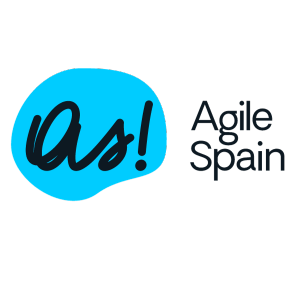Promoviendo la agilidad
Desde 2009, nuestra misión es promover los marcos de trabajo ágiles y sus beneficios en España y en el mundo de habla hispana.
Creemos profundamente en las metodologías ágiles, el desarrollo ágil de software y la agilidad empresarial (business agility) como formas superiores de construir valor, innovar y gestionar equipos y organizaciones en forma humana, productiva y sostenible.
Creada y sostenida por la comunidad con esfuerzo voluntario, la Asociación es una entidad tipo ONG, sin fines de lucro que acompaña al movimiento ágil coordinando y brindando apoyo legal-administrativo a los dos eventos más importantes del calendario ágil español: la Conferencia Agile Spain (CAS) y el Agile Open Spain (AOS).
Además de coordinar los dos eventos principales, la Asociación promueve y apoya la organización de multitud de eventos independientes y micro-eventos organizados por comunidades locales. También se gestionan los foros de la comunidad agile española como el Slack de Agile Spain y la lista de correo de Agile Spain.
Ser parte de Agile Spain ofrece beneficios para particulares y organizaciones
Uniéndote a Agile Spain no solo apoyas nuestra misión, sino que también obtienes acceso a una serie de beneficios exclusivos. Como partner corporativo, no sólo obtendrás estos beneficios para tus empleados, sino que estará entre los líderes de la industria que defienden los valores y principios Agile y que valoran la creación de lugares de trabajo eficaces, humanos y sostenibles.

Nuestros eventos
Nueva imagen de nuestros eventos
¡Agile Spain se transforma!
Estamos emocionados de presentar la nueva imagen de nuestros eventos AOS y CAS. Hemos dado un «Glow up» a nuestra marca, manteniendo la esencia que nos define, pero con un toque más moderno y fresco. Esta renovación es más que un cambio de imagen; es un reflejo de nuestro compromiso con la mejora continua y la innovación.
Conéctate con nosotros y sé parte de esta nueva etapa llena de aprendizaje, colaboración y crecimiento.
¡Porque juntos, llegaremos más lejos!
© 2024 · Agile Spain
